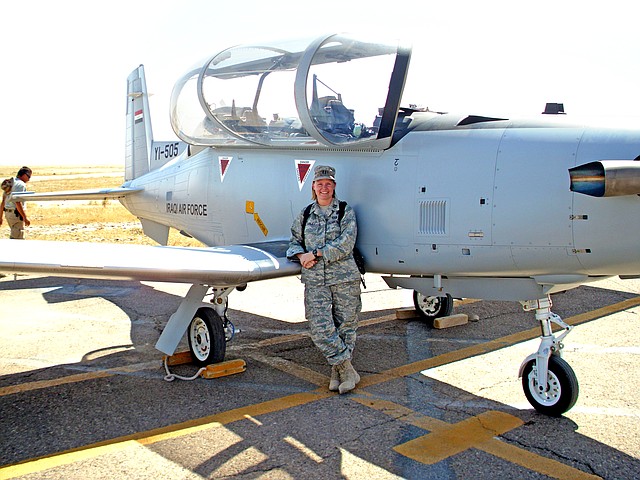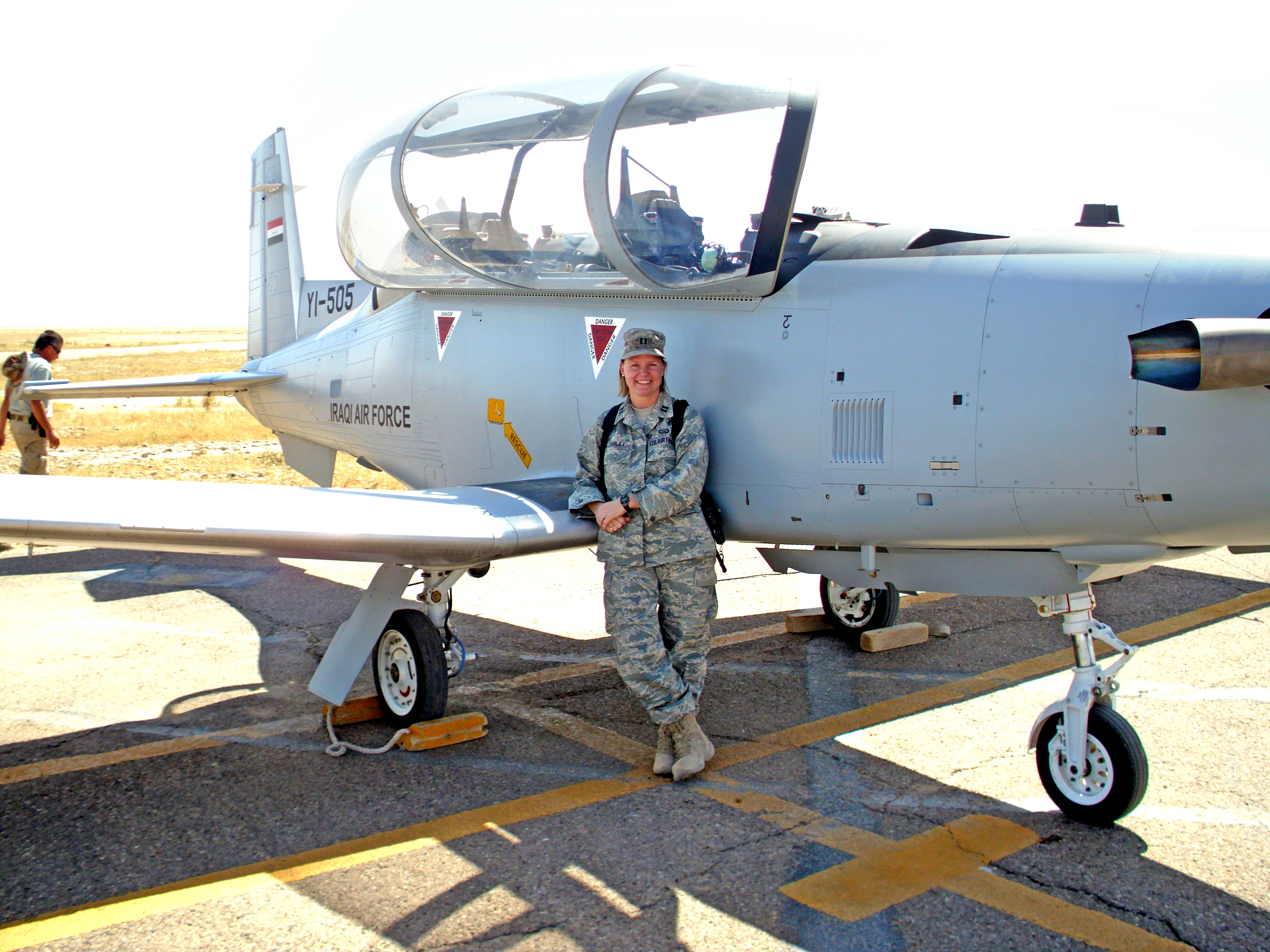Local Air Force captain discusses her life in Iraq
Monday, May 30, 2011
U.S. Air Force Capt. Brandy Shirley grew up in Chattanooga, graduating from Lookout Valley Middle/High School and later the University of Tennessee before joining the service.
She has spent the last year in Iraq working as an intelligence officer for pilots who are training Iraqis as the fledgling military builds its own air force. Her husband, Erick Shirley, and two children, 7-year-old John and 5-year-old Georgia Ann, have awaited her return home at Goodfellow Air Force Base near San Angelo, Texas.
Shortly after returning home in early June, Shirley and her family will head to their next duty station in Germany.
She spoke with the Chattanooga Times Free Press from Iraq recently to share her experiences.
Q: Tell us a little bit about your job as intelligence officer.
A: I take care of our pilots. I brief them every day about the threats in the area where they'll be flying. I advise the Iraqi pilots on the value of having good intelligence and good information. I give them a weekly intelligence brief on what's happening across their country.
Q: What did you do during your previous deployment?
A: I deployed to Baghdad in 2008 for six months. I worked with the Army and did intelligence work focusing on western and northern Iraq. We worked on defeating al-Qaida, specifically on trying to track down the bad guys, where they were and how they were getting their money.
Q: A lot of the public's focus has turned to Afghanistan. What do you think people should know about what's still being done in Iraq?
A: The big thing is advising, assisting, training and equipping the Iraqi military. Here we're doing maintenance on the aircraft, doing pilot training, so that they can be completely self-sufficient and plan defense of their own country.
Q: What's been enjoyable about your deployment, and what's been difficult?
A: It's great to work with the Iraqis. Especially being a female they get to see what we can bring to the fight. Even though they are way far off from allowing females in their military, I've gained their trust and respect. They come to me to ask questions, work through issues, problems with training.
You read about all the negative stuff in Iraq. But you get to see these pilots and talk to them, and they like their country and they hate the corruption just as much, and they're trying to do something for their country to make it better.
The hard part has obviously been being away from my family. You kind of look back; there's just certain things you take for granted. Just little freedoms you don't get in a deployment environment. I miss my family terribly; I can't wait to see them. It's a whole year of my kids' lives I've missed. I'll never get that time that I've missed.
Q: How did you, your fellow troops and the Iraqis you work with react to the news of Osama bin Laden's death?
A: It was big news for us; of course we were all happy. But here in Iraq there wasn't all that big of an impact across the battle space in Iraq. It was a topic of discussion across the country. It was kind of just one of those things: well, that's great, we made that objective; but as far as the tactical things we have to do here, we still have to do them.
Q: What are your thoughts on the changing roles of women in the military, more service in combat and potential changes to rules regarding combat-related jobs for women?
A: It depends. I raised my hand and took an oath just like anyone else. Where I disagree with women being placed in these roles is if they can't meet the requirements, like with Special Operations, Navy SEALS. If you have to lower the standards in order to allow females to do that job, then I disagree with them being placed there because those standards are there for a reason.

